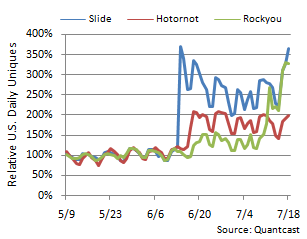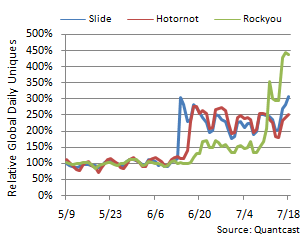While US newspaper websites appear to be going ‘widget’-crazy, there’s a distinct lack of the things this side of the pond.
The way the US sites are using these gadgets shows the breadth of news subjects they can be applied to:
- WSJ.com has a stock market tracking widget;
- USAToday.com uses the devices to bolster its travel section with an interactive map of airline delays, and a similar map for personalised weather forecasts;
- The Washington Post’s website has an issue tracker that allows users to plot the media coverage of the US presidential candidates (registration required).
These type of applications can sit on your desktop or feature on sites like Facebook, which now encourages outside software developers to design applications for its users. Answering this call, the Washington Post has developed political quiz application, The Compass, for use on the social networking site.
According to the AP article:
Jim Brady, the executive editor of WashingtonPost.com, says widgets can boost a newspaper’s brand online, refer new readers back to the site and perhaps generate revenues through sponsorship deals.
Sounds like a plan.
Yet on a quick perusal, there don’t seem to be any on the UK’s newspaper sites. Why not?
Has anyone spotted any, anywhere?
 Facebook, Facebook, Facebook, it’s all I ever hear. But could
Facebook, Facebook, Facebook, it’s all I ever hear. But could 
